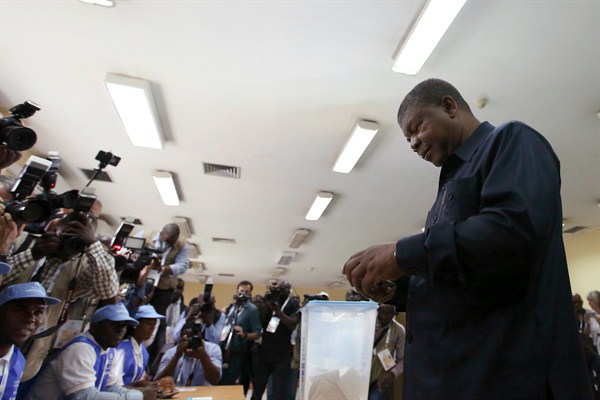On Sept. 26, Joao Lourenco was sworn in as just the third president since Angola gained its independence from Portugal in November 1975. Unlike other post-colonial leaders in Africa, Angola’s first president, Agostino Neto, was in power for barely four years, until September 1979. In the nearly 38 years since then, Jose Eduardo dos Santos has been at the helm of the oil-rich nation.
The historic handover of power, after elections in August, came as Angola finds itself in the deepest economic crisis since before its civil war ended in 2002. Even if there is not yet a political transition within dos Santos’ long-ruling party, the Popular Movement for the Liberation of Angola, or MPLA—which he still heads—there is a great deal of hope for improved governance and a new code of conduct among the wealthy Angolan elite, which many perceive as deeply corrupt.
At the inauguration, the president of the Constitutional Court, Rui Ferreira, called the transfer of power a moment for Lourenco to fulfill the promise of the MPLA’s campaign slogan: “Correct what is wrong, improve what is good.” Ferreira didn’t mince his words in addressing the new president: “Fight corruption! Strengthen democracy and the rule of law! Diversify the economy! Improve the quality of life of the Angolans! Mr. President, your task will not be easy, the time and conditions are difficult, there are many challenges.” He concluded his address by wishing Lourenco the best of luck.

